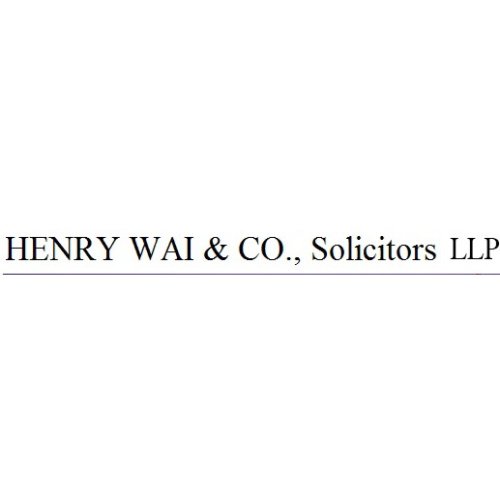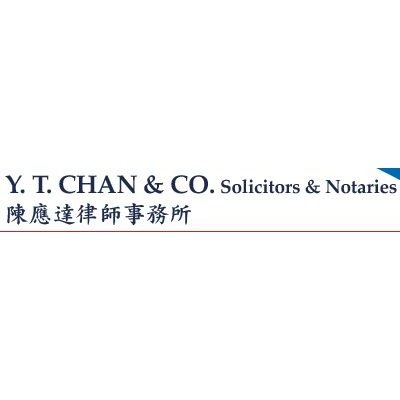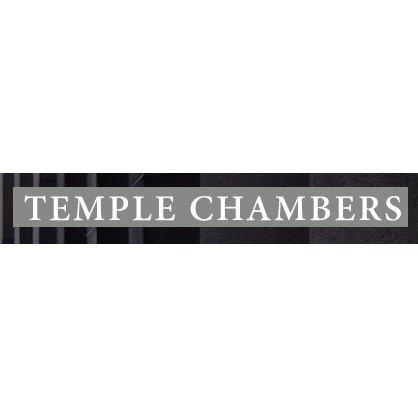Best Public-Private Partnerships (PPP) Lawyers in Admiralty
Share your needs with us, get contacted by law firms.
Free. Takes 2 min.
List of the best lawyers in Admiralty, Hong Kong
About Public-Private Partnerships (PPP) Law in Admiralty, Hong Kong
Public-Private Partnerships (PPP) are long-term agreements between government entities and private sector organizations for the development and delivery of public infrastructure or services. In Admiralty, Hong Kong, PPPs are commonly used for projects such as transportation, public utilities, health facilities, schools, and urban redevelopment. This model enables the government to leverage private sector expertise, capital, and innovation, while the private partner typically receives a return through payments or usage rights. The PPP framework in Hong Kong is regulated by multiple legal, regulatory, and policy instruments designed to ensure transparency, value for money, and fair risk allocation.
Why You May Need a Lawyer
PPP projects are complex and involve substantial legal and commercial risks. Engaging a lawyer is essential in a variety of situations, including:
- Drafting, reviewing, or negotiating PPP contracts, concession agreements, and joint venture arrangements
- Interpreting PPP-related laws, policies, and guidelines in Hong Kong
- Managing regulatory compliance, including collective investment scheme regulations, anti-corruption provisions, and competition law
- Navigating disputes, including contract breaches, performance issues, and claims for compensation or damages
- Handling land acquisition, environmental regulations, or planning permissions for PPP projects
- Conducting due diligence on PPP opportunities and potential partners
- Assisting in project financing and structuring
- Ensuring that risk-sharing between public and private entities is fair and properly documented
A qualified lawyer in Admiralty can help protect your interests, minimize liabilities, and guide you through project complexities.
Local Laws Overview
Public-Private Partnerships in Admiralty, Hong Kong, are shaped by a combination of statutory law, government policy, and contractual arrangements. Key legal aspects include:
- No Single PPP Act: Hong Kong does not have a standalone PPP statute. Legal principles relevant to PPPs are derived from contract law, the Companies Ordinance, the Public Finance Ordinance, and the Government Procurement Agreement.
- Government Procurement Policy: The Hong Kong government must follow open, fair, and competitive procurement processes. The Environment, Transport and Works Bureau often issues PPP-specific guidelines for major public works.
- Project-specific Legislation: Large PPPs may require special legislative approval or tailored ordinances, especially when involving land leases or infrastructure works.
- Risk Allocation: Contracts define the responsibilities and risk-sharing between the government and private partner, including construction, operation, financing, and revenue risks.
- Transparency and Dispute Resolution: PPP agreements usually provide for dispute resolution mechanisms such as mediation, arbitration, or litigation under Hong Kong law.
- Regulatory Oversight: Depending on the sector, agencies like the Transport Department or Environmental Protection Department may have supervisory roles over PPP projects.
- Corruption and Ethics: Anti-bribery and corruption laws, primarily enforced by the Independent Commission Against Corruption (ICAC), are strictly applicable to PPP projects.
Engaging a legal professional familiar with local PPP laws in Admiralty ensures proper compliance and eases navigation through Hong Kong's legal landscape.
Frequently Asked Questions
What is a Public-Private Partnership (PPP)?
A PPP is a contractual arrangement where the government collaborates with a private company to finance, build, operate, and/or maintain infrastructure or provide services.
Which types of projects use PPPs in Admiralty, Hong Kong?
Common sectors include transport infrastructure, public utilities, hospitals, schools, technology hubs, urban redevelopment, and major government buildings.
How does the Hong Kong government select private partners for PPP projects?
Selection is typically done through open tenders, with assessment criteria based on technical capability, financial strength, experience, and value-for-money proposals.
Do PPP agreements in Admiralty, Hong Kong, have standard terms?
While certain clauses are common (risk allocation, payment terms, dispute resolution), each PPP is unique and contracts are usually customized for the specific project.
How are disputes in PPP projects resolved?
PPP contracts typically outline the preferred method of dispute resolution, such as negotiation, mediation, arbitration, or litigation in Hong Kong courts.
Are foreign companies allowed to participate in PPP projects?
Yes, foreign entities can participate, but must comply with Hong Kong's procurement rules, local regulations, and possibly set up a local entity or consortium.
What are the key legal risks in PPP projects?
Legal risks include unclear contract terms, unforeseen regulatory changes, project delays, cost overruns, and breach of agreement by either party.
Is government financial support available for PPP projects?
Depending on the project, the government may provide funding, guarantees, or land grants, particularly where public interest is high.
Do PPP projects need to comply with environmental and planning laws?
Yes, all relevant environmental impact assessments, zoning, and planning permissions must be obtained, and environmental protection laws strictly observed.
When should I consult a lawyer about a PPP project?
It is advisable to engage legal counsel before bidding on a PPP, during contract negotiations, when handling regulatory issues, or if disputes arise during the project lifecycle.
Additional Resources
Individuals and businesses interested in Public-Private Partnerships in Admiralty, Hong Kong, may find the following resources helpful:
- The Development Bureau - Issues PPP guidelines and policy updates for public works
- Transport Department - Oversees transport-related PPP projects
- Environment and Ecology Bureau - Regulates infrastructure projects with environmental impact
- Independent Commission Against Corruption (ICAC) - Offers guidance on corruption prevention and compliance in public projects
- Hong Kong International Arbitration Centre (HKIAC) - Provides information on arbitration services for PPP disputes
- Hong Kong Law Society - Can help you find a qualified solicitor with PPP experience
- Hong Kong General Chamber of Commerce - Offers insight and networking opportunities for PPP participants
Next Steps
If you require legal assistance with a PPP in Admiralty, consider these steps:
- Identify your needs, whether related to contract drafting, compliance, or dispute resolution
- Gather documentation about the project, contracts, and any correspondence
- Reach out to a solicitor or law firm with proven PPP and infrastructure law experience
- Request an initial consultation to discuss your goals, potential risks, and appropriate legal strategies
- Keep updated with local regulatory changes that could impact your PPP project
- Consider engaging other relevant professionals, such as financial advisors or engineers, for a multidisciplinary approach
A lawyer who understands PPP law in Admiralty can guide you through complex legal challenges, paving the way for a successful public-private collaboration.
Lawzana helps you find the best lawyers and law firms in Admiralty through a curated and pre-screened list of qualified legal professionals. Our platform offers rankings and detailed profiles of attorneys and law firms, allowing you to compare based on practice areas, including Public-Private Partnerships (PPP), experience, and client feedback.
Each profile includes a description of the firm's areas of practice, client reviews, team members and partners, year of establishment, spoken languages, office locations, contact information, social media presence, and any published articles or resources. Most firms on our platform speak English and are experienced in both local and international legal matters.
Get a quote from top-rated law firms in Admiralty, Hong Kong — quickly, securely, and without unnecessary hassle.
Disclaimer:
The information provided on this page is for general informational purposes only and does not constitute legal advice. While we strive to ensure the accuracy and relevance of the content, legal information may change over time, and interpretations of the law can vary. You should always consult with a qualified legal professional for advice specific to your situation.
We disclaim all liability for actions taken or not taken based on the content of this page. If you believe any information is incorrect or outdated, please contact us, and we will review and update it where appropriate.














